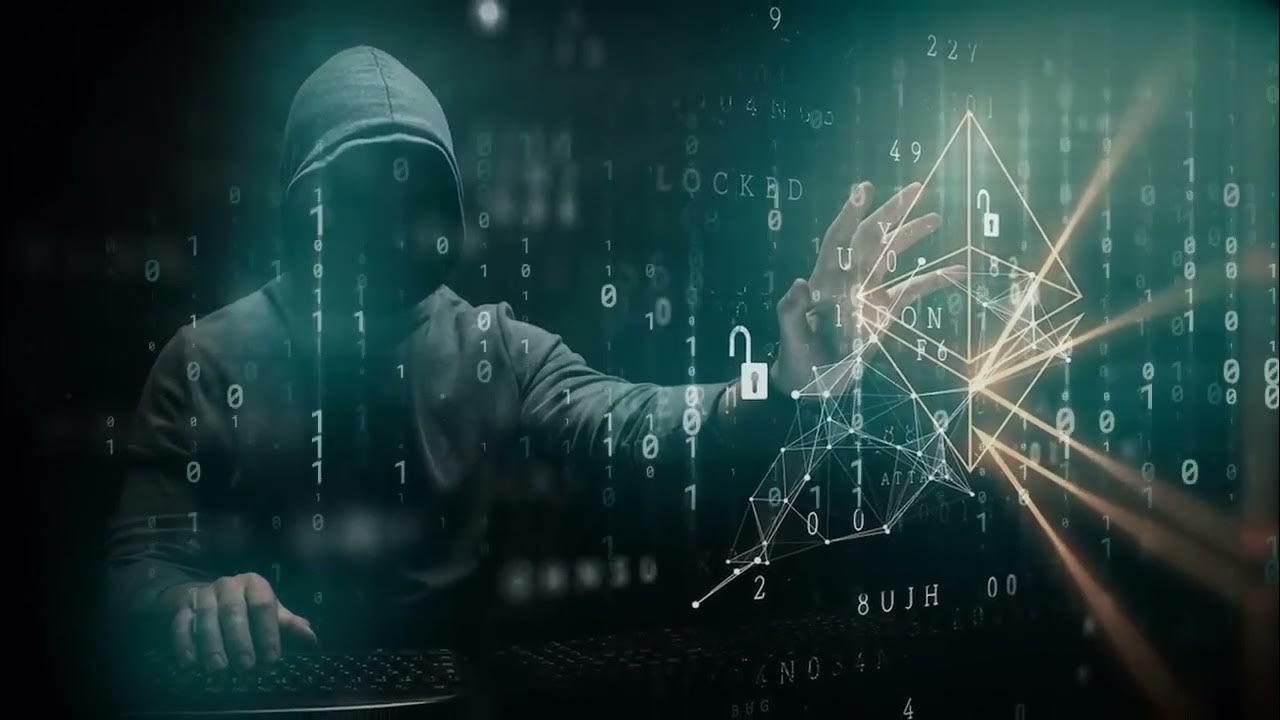Britannica Money: Blockchain and Cryptocurrency | Encyclopaedia Britannica
Summary
TLDRBlockchain, often associated with cryptocurrency, is a decentralized digital database with potential applications beyond finance. It operates like a ledger, where information, such as transactions, is stored in blocks linked together in a chain. Each block is verified by multiple nodes across the network, making it highly secure. While its current primary uses include crypto transactions, smart contracts, and medical records, blockchain technology could revolutionize industries like property management, voting systems, and supply chain logistics. Though still in its early stages, it has the potential for widespread future adoption.
Takeaways
- 💡 Blockchain is a digital database, often compared to a ledger or spreadsheet, that records transactions in a sequential chain of blocks.
- 🔗 It operates on a decentralized model, with data spread across multiple computers or nodes that maintain the ledger in real-time.
- 🔒 The security of blockchain comes from its consensus mechanism where all nodes must agree on the addition of a new, verified block.
- ⛓ To tamper with blockchain data, a hacker would need to alter every copy of the blockchain across the network, making it nearly impossible due to its global distribution.
- 💼 Blockchain is primarily used for recording cryptocurrency transactions, executing smart contracts, and storing medical records.
- 🏢 Visionaries propose blockchain for a wide range of applications including property transactions, voting systems, supply chain management, and tax collection.
- 🚀 Despite being in its early stages, blockchain technology has the potential for widespread adoption across various industries.
- 🌐 The global nature of blockchain's nodes contributes to its robustness and resistance to tampering.
- 💰 Blockchain technology is not limited to cryptocurrencies; it has broader applications in commerce, healthcare, and government.
- 🔄 The technology is subject to cycles of hype and setbacks, similar to any emerging technology, but holds promise for future development and implementation.
Q & A
What is blockchain?
-Blockchain is a digital database that functions like a ledger or a giant spreadsheet where new information, such as transactions, is timestamped and stored in a block, which is then connected to other blocks in a sequential 'chain.'
How does blockchain differ from traditional databases?
-Unlike traditional databases that are controlled by a single entity, blockchains are decentralized, spread across multiple computers called nodes, which monitor and maintain the distributed ledger in real-time.
Why is blockchain considered revolutionary?
-Blockchain is seen as revolutionary because it offers a decentralized, secure, and transparent way to store and manage data. Its consensus mechanism allows multiple parties to agree on the state of the ledger without a central authority.
What role does blockchain play in cryptocurrency?
-Blockchain is the underlying technology that powers cryptocurrencies like Bitcoin. It records and verifies transactions, ensuring that ownership of cryptocurrency is securely transferred and tracked.
What makes blockchain secure?
-Blockchain's security comes from its decentralized nature. For a hacker to tamper with a block, they would need to alter every single copy of the blockchain across the entire network, which is nearly impossible due to the large number of nodes.
What is a node in the context of blockchain?
-A node is a computer that participates in the blockchain network. Nodes monitor, verify, and maintain the distributed ledger by agreeing on the validity of transactions in real-time.
How does blockchain reach consensus among nodes?
-Blockchain uses a consensus mechanism, where all participating nodes agree on the validity of new blocks. This ensures that all nodes maintain an identical copy of the blockchain.
What are some current use cases for blockchain beyond cryptocurrency?
-Blockchain can be used in various industries, including healthcare for storing medical records, executing smart contracts, supply chain management, property transactions, voting systems, and tax collection.
Why is blockchain adoption still in its early stages?
-Blockchain is in its early stages because it is a new technology with ongoing experimentation. Challenges such as scalability, regulatory concerns, and integration into existing systems must be addressed before widespread adoption occurs.
What are smart contracts, and how are they related to blockchain?
-Smart contracts are self-executing contracts with the terms of the agreement directly written into code. They are stored and executed on a blockchain, enabling automatic transactions when conditions are met without the need for intermediaries.
Outlines

此内容仅限付费用户访问。 请升级后访问。
立即升级Mindmap

此内容仅限付费用户访问。 请升级后访问。
立即升级Keywords

此内容仅限付费用户访问。 请升级后访问。
立即升级Highlights

此内容仅限付费用户访问。 请升级后访问。
立即升级Transcripts

此内容仅限付费用户访问。 请升级后访问。
立即升级浏览更多相关视频

Chapter 2: Part II - Blockchain Technology (Video)

Apa itu Blockchain?

O que são criptomoedas e como elas funcionam? Entenda de um jeito simples | NuExplica

Apa Sih Gunanya Crypto?

IL MISTERO DIETRO BITCOIN: La storia completa

Mavryk Network | The Complete Guide to RWA's, DeFi & Seamless Web3 | Wallet, Equiteez & Maven
5.0 / 5 (0 votes)
